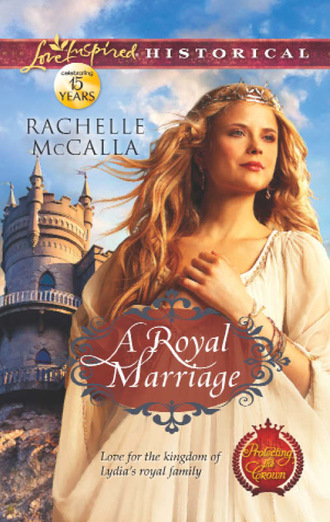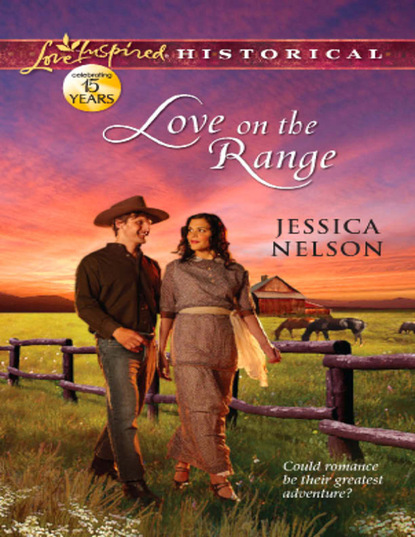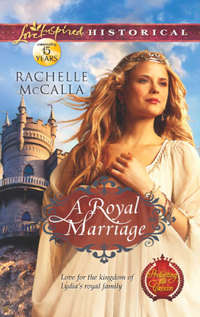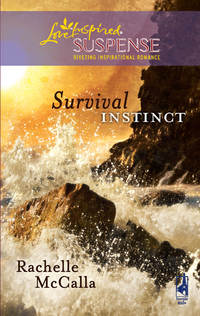
Полная версия
A Royal Marriage
And one horse had a greater chance of slipping unseen through the Illyrian borderlands. The larger their party, the greater the risk of being spotted. Relations with the Illyrians were fragile enough. He had no desire to strain them further.
“What do you think?” Luke leaned close and spoke in a hushed tone. “She might be able to make the ride. Will you be able to find the herb?”
“The summer draws to a close. Hare’s tongue isn’t so abundant now, but yes, I should be able to find some.”
“Is there any chance you could bring it back in time to save her if she stayed at the castle?”
“None.” John wished he could tell his brother otherwise. It was foolish enough to get involved in the emperor’s dealings, situated as they were between the Roman Empire to the west, and the Illyrian holdings of the Byzantine Empire to the east. If the Illyrians and the Romans decided to play tug of war with Lydia, his tiny nation would never know peace.
But if he let the emperor’s daughter die without even trying to help, the empires would obliterate Lydia for revenge.
He didn’t like it—not at all. But neither did he see any way around it. And there wasn’t time to waste fretting. There was more than one woman’s life at stake—there was the safety of all Lydia. If the Illyrians went to war with the Roman Empire, Lydia would be trampled between them—especially if Lydia was blamed for bringing war upon them.
King John raised his voice and addressed those gathered on the dock—including half a dozen soldiers who’d been dispatched from the castle and now stood at attention near the head of the wharf. “Ready my horse and falcon and prepare a horse and party for the maid.” He looked to the wimpled woman. “I’m sorry, I haven’t been told your name.”
“Hilda, Your Highness.”
“Prepare a litter for Hilda.” He lowered his voice and explained to those standing nearby, “The retinue can follow as best they can.”
“But, Your Majesty,” Urias sputtered, “you’re not really thinking of taking a riding party to the Illyrian border?”
“Certainly not,” John assured the courtier. “The riding party won’t be able to travel nearly as quickly as my horse. Once I’ve applied the hare’s tongue to her injury, the princess and I will double back and meet up with her maid. If we must encamp on the road, she’ll have a proper attendant.”
“Your Majesty,” Eliab simpered, “who will be in charge of the castle while you’re away?”
Only respect for his father and the trust he’d placed in the courtiers kept John from uttering a prickly retort. But even the trust of his late father wouldn’t earn either man a custodial role in his absence. “Prince Luke is more than capable of overseeing matters while I’m away. With your prayers for my safe passage, I should be back by sundown tomorrow.”
“And if you’re not, what then?” Eliab pressed. “Shall we send a regiment to look for you?”
“No.” John gave them a hard look and made sure Luke heard him clearly. “If I am delayed beyond next evening, it may be a sign of trouble with the Illyrians. Dispatching soldiers would be the worst possible response. I’ll have my falcon. If Fledge returns without me, then you may be concerned. Whatever happens, you must trust Luke’s judgment. He is a prudent and capable leader.”
Luke gave him a firm smile in return for his compliment. “God be with you, brother.”
John met his brother’s eyes and was glad to see that Luke understood. They hadn’t asked for this, but it wasn’t a challenge they could walk away from. As rulers of Lydia, they had an obligation to protect their people—as their father had done—and to die protecting their people, if the situation called for it. Despite the political entanglements, this mission was no more difficult than others they had undertaken in the past. But there was a great deal more riding on the outcome.
Chapter Two
Gisela leaned on Hilda and tried to catch her breath. Really, standing upright should not require such exertion.
Nor should thinking.
But the blearying effects of the throbbing wound above her right eye made her head swim as though their ship hadn’t escaped the Saracens at all. If they’d been sunk in the Mediterranean, surely even then her thoughts would not swim so. The constant roar of the sea echoed through her head as though she held a great seashell to her ears to listen.
But there was no seashell, only these unending waves of fever that gripped her with their relentless thrashing.
She could hear the rattle and clank of gear and smell the scent of a horse over the brine of the sea, which lapped gently at the wharf beneath them. At least King John had been sensible enough to accept her plan. There really wasn’t any way around it. If she’d had use of her eyes and known what she was looking for, she’d have gone after the hare’s tongue herself.
“Your Highness, the ride will be difficult.” That was King John’s voice, much nearer to her now. If she reached out, she could touch him.
She remained still. “I’m quite sure the alternative is worse.” She wished she could open her eyes and look at the man, but even her left eye, though uninjured, was swollen shut by the spreading infection. Every time she’d tried to raise the lid, she’d felt such a horrific spasm of pain that she’d stopped trying.
“I thought I should extend a word of caution. I’ll do my best to make the trip a smooth one, but we’ll be riding over uneven ground—”
“Your attention should be on the terrain, not on me.” She quieted his apologies. “And I expect you’ll need to be looking for this hare’s tongue. Don’t let my presence distract you, King John.”
“We should be going then, Your Highness. The sun reverses its course for no one, not even kings and emperors’ daughters.” His voice betrayed a melancholy sadness. Gisela couldn’t help wondering what had caused it. At the very least, she hoped he didn’t terribly mind the inconvenience she’d caused him—or if he did mind, he could blame the Saracens, since they’d started the trouble.
For her own part, though her injury concerned her, Gisela felt a mixture of dread and relief that her trip to Illyria had been interrupted. Thrilled as she’d been to get out from under her father’s overprotective hand to see the world, she hadn’t been particularly looking forward to being tied down by marriage, least of all to an Illyrian prince. Like a diver holding his breath for just a few minutes before coming up for air, Gisela felt the pressures of her impending marriage and the loss of freedom that would accompany it. This was an opportunity, however brief, for her to gasp a breath before going down again.
Her marriage was politically necessary and couldn’t be avoided. All too soon, she’d become the bride of a prince she’d met only twice before. She didn’t welcome her injury any more than she’d welcomed the Saracens’ attack on their ship. But she couldn’t be unhappy for the excuse it gave her to extend her freedom, if only by another day or two. Perhaps she could see a bit of Lydia—assuming she survived and retained her vision. She’d heard of the tiny Christian kingdom and always been curious about the place.
Rather than allow herself to be consumed by worry, she tried to find the good in the midst of her dire situation. King John was willing to help her and did not seem to be overly upset about being suddenly burdened. And they’d be leaving Hilda’s anxious fawning behind.
That alone would be worth the rigors of the journey.
“Are there any preparations you need to make before we leave? Do you have everything you need?” King John sounded as though he was ready to be off.
“I’ll need my sword.”
“Oh, my lady, no,” Hilda protested.
“We brought it with us from the ship.” Gisela turned back as though she might fetch it herself. “I never ride without it.”
“You should have no need of a sword.” King John’s voice sounded close, indicating he was nearby. “I’ll have mine.” A protective note sounded through his words.
“You mentioned possible trouble with the Illyrians. I won’t allow myself to knowingly enter a potentially dangerous situation without the means of protecting myself.”
“You can’t even see, Your Highness,” King John protested.
“Then stay back from me if I have to use it, Your Majesty.”
Thankfully, Boden spoke up in her defense. “She is quite skilled with the sword, King John. She saved our ship. Had she stayed below, as instructed, the Saracens would have taken us. As it was, she surprised them and tipped the battle back in our favor.”
As he spoke, Gisela felt the familiar weight of her sword belt pressed into her hands. She quickly linked the scabbard around her waist. “I’m ready. Shall we depart, Your Majesty?” Not only was she eager to begin the journey, but she feared she wouldn’t be able to stand upright much longer, and she didn’t want to do anything that might give away how very weak she felt. King John might realize she wasn’t up to the journey after all. He might change his mind.
She couldn’t risk that.
With a fair amount of shuffling and no shortage of exclamations from Hilda, Gisela was lifted onto the horse. She found they’d situated her in front of King John, who wrapped his arms around her to hold her steady while he guided his mount.
The gentleness of his touch surprised her. She could tell from his stature that he was of good size, possibly even as tall as her father, who stood taller than nearly every man in his empire. Yet King John’s arms wrapped around her as though she was some precious, delicate thing and he was afraid she might break.
His consideration penetrated her haze of fever, and she took note. Yes, she’d have to be certain her father compensated the king generously. “Hilda?” She pulled the lady in waiting to her side the moment the woman offered her hand. “Whatever happens,” Gisela whispered, “make sure my father knows that King John is to be rewarded for his efforts.”
“Oh, Your Highness.” Hilda started sobbing again, as though the very likelihood of Gisela not living to deliver the message herself was more than the servant could bear.
Gisela feared King John would notice the maid’s blubbering, but his attentions seemed to be on his men. The king gave instructions to those who’d be traveling with Hilda. As long as they kept to their intended path, they’d meet back up with Hilda’s party shortly after nightfall, and could stay together at the wayside inn he appointed as a rendezvous point.
Assuming everything went according to plan.
“And if you don’t arrive?” Hilda recovered from her crying enough to anxiously ask.
“Then wait.”
The prancing horse moved forward, and Gisela felt King John nudge the animal on.
“You have our prayers!” a voice called out from behind them, followed by a chorus of voices assuring them
of the same thing and giving their blessing on their journey.
Gisela tried to sit upright, but the motion of horse beneath her taxed her reserves of strength. The spinning sensation in her head had picked up considerably when they’d placed her on the horse, and instead of easing now that she sat, it grew steadily worse.
The sun felt hot on her face in spite of the veil that covered her. Or did the heat radiate from inside her? Whether it came from the sky or the wound on her forehead, the searing fire grew uncomfortably warm. She wished she could crawl away from it. But if it originated from her injury, there would be no crawling away, only increasing discomfort from this wilting heat that made her feel as though she was about to shrivel up and blow away with the slightest breeze.
An exhausted moan escaped her lips.
“Are you well?” King John’s voice held concern, though he did nothing to slow his horse.
“I’m as well—” she pinched back another moan and tried to straighten her back “—as the circumstances— Oh!” The horse beneath her lurched back as it leaped over something, and she found herself falling, against her will, back toward the king.
“Rest now. Rest as much as you can.” King John’s gloved hand brushed her shoulder, steadying her against his chest. “You can lean on me.”
“It doesn’t seem proper.” She realized her protest was simply an excuse. She’d shared horses dozens of times with members of her father’s household—relatives and servants alike. Rather, she didn’t like giving up any measure of her independence, including her ability to sit up on her own. And she’d heard the warm tone in Hilda’s voice when King John had addressed her. Gisela knew her maid well enough to recognize that Hilda had blushed at the king’s attention.
Why? Because he was royalty? No, Hilda regularly interacted with Gisela’s father and brothers without that note entering her voice. The maid only spoke with such resonance when she interacted with a man she found particularly handsome.
So, King John must be comely, then. If Gisela could have mustered the strength, she might have been curious to see him. In spite of his gentleness, the muscles that supported her felt strong. Gisela tried to recall if she’d ever heard anything about the distant Mediterranean ruler, but precious little news from Lydia traveled as far as her home in Aachen.
With no prior knowledge of him, without even the use of her eyes, Gisela couldn’t explain precisely why the man made her feel protected—cherished, even. Perhaps the sensation arose from the disorienting influence of her fever. She tried again to force her left eye open, hoping to get a glimpse of him. Her efforts were rewarded with a shot of pain that lanced through her with alarming speed and ferocity.
“Careful,” King John soothed, having obviously felt her fighting the pain. “You won’t make it unless you rest. It’s a long ride to the borderlands, and your condition will only be getting worse. Shall we turn back now and tell them it’s no use?”
The horse slowed slightly, as if anticipating instructions to reverse course.
Gisela relaxed backward and let herself droop into a slightly reclined position, resting more of her weight against him, comforted by the feel of his strong arms that held her so securely, yet at the same time, so tenderly. She exhaled a painful breath. The darkness over her eyes grew heavier, and the roar in her ears clamored in counterpoint with the horse’s stride and the unruly beat of her heart.
The dizziness that had threatened to topple her on the wharf now returned with stomach-lurching spite. The site of her injury throbbed, producing flashes of colorful light that swooped and swirled across her field of vision. And through it all, the relentless fever threatened to bake her like grapes laid out to dry in the sun. She heard a plaintive moaning sound and realized it came from her own throat.
“Don’t worry about staying on the horse. I won’t let you fall.”
Gisela clung to the promise in his words. King John’s voice was pleasantly deep, his accent alluring but not so foreign that she couldn’t readily understand his words. Indeed, she found the sound of his voice soothing. Gisela wanted something to think about that would distract her from her pain—preferably something more intellectually engaging than mere curiosity about the handsomeness of her benefactor.
Was he young or old? Married? Betrothed? It shouldn’t matter, but as she drank in his masculine scent, she couldn’t help wondering. If she could learn more about the king who’d set aside his plans on a moment’s notice to help her, perhaps he would distract her from her pain. She found her voice. “Your reputation as a healer must be widely known. Have you been practicing for many years?”
The king seemed to appreciate her need to talk, and answered readily, as though hoping to distract her from her ailment. “My mother began teaching me about herbs and injuries when I was young. Her family has had a gift for healing for many generations.”
“I wondered—” Gisela had to struggle to speak past the pain “—why a king would also be a healer. Most men settle on one or the other.”
“Actually, the healing lessons were originally intended for my brother Luke. My mother named us after the New Testament gospels, and she hoped my brother would become a great healer like the physician, Luke.”
“Didn’t he?” Gisela would have finished the question, but the aching in her head caught up to her, and the bone-rattling pace of the horse didn’t help.
John answered quickly, as if he didn’t want her to strain herself by trying to speak. “Luke tried to learn. So did my youngest brother, Mark. But for whatever reason, I’m the only one who ever caught on. The other two had no success or interest and quickly gave up trying.”
“You have to have a gift for it,” Gisela agreed, understanding. “I wanted to play the lyre, but no amount of practicing would make me half as good as my sister, and she didn’t even care for the instrument.”
“That’s precisely how it was. I took to it readily. For many years, I thought I had a gift.” A melancholy note infused his words.
“Had?” Gisela repeated.
She felt the man behind her tense. Was there something that had caught his attention, which she couldn’t see due to her injured eye? Or was his sudden change in demeanor due to her question?
Finally, the king murmured. “The results of my efforts haven’t always been successful in recent years.”
A melancholy silence followed his statement. Gisela got the sense that he still mourned some great loss. Was it the loss of his gift? But then, surely his knowledge of herbs and how to use them had not been taken from him. He wouldn’t have tried to help her if his skills for healing were completely gone.
She couldn’t sort it out. The more she tried to think, the more her injury throbbed, distorting her thoughts with feverish confusion. Was it the king’s pain or her own that filled her heart with sorrow? It couldn’t be her own—she’d earned it honorably defending the ship from Saracens. If she hadn’t been injured she’d have likely been killed.
So then, it must have been King John’s past hurts that prodded her heart to the verge of mourning. Already strained by the gash on her head, Gisela whimpered softly as tears formed under her eyelids, adding pressure to her already-swollen eyes.
“Whoa.” The king pulled his mount to a halt. He shifted, and a moment later Gisela felt his hand on her face. “Are you getting worse?”
His touch imparted comfort, and when he drew his hand away, she missed it.
“Are you thirsty? Can you drink?”
Gisela mustered her voice. “Please.”
Moments later a flask touched her lips, and cool water flowed into her mouth. It tasted so much better than what they’d had on the ship, which had begun to carry the flavor of the wood barrels in which it was stored. The water John gave her was slightly sweet and blessedly refreshing to her fever-parched tongue.
“Now rest if you can,” he murmured, slowly urging the horse up to speed. “We have a long way to travel yet.”
Rest. If only she could—if only the pain would fade away and allow her a measure of peace. The cacophony of sound and light roared inside her head, thundering with each rise and fall of the horse’s stride. Would this infection be the end of her?
“You need to rest if you’re going to keep your strength.”
The king’s words were a reminder she sorely needed. Yes. She had a mission to fulfill. She couldn’t die. She had to keep up her strength. To rest.
The people they’d left back at the dock were depending on her. If she didn’t make it, there would likely be war, not only for her father’s people, but for King John’s, too. She owed it to them to survive.
More than that, she owed it to King John himself. His willingness to help her, politically motivated as it may have been, was nonetheless an act of charity. It would be ungrateful of her to die when he’d gone out of his way to procure for her the means of life. Besides, she had to recover if she was ever going to see if King John was half as handsome as she imagined him to be.
* * *
John kept to the main road that led southeast down the Lydian peninsula. When the woman in front of him finally slumped into a fitful sleep, he prodded his horse to greater speeds. He hadn’t wanted to upset Gisela too much, but they needed to hurry. He’d wasted precious time arguing with his courtiers.
Fortunately Moses, his favorite stallion, had been bred for speed. The animal hadn’t been out for a hard run in weeks and was eager to stretch his legs. “Good boy, Moses.” John reached past the Frankish princess and patted the stallion on the neck, encouraging him. If he had to take the emperor’s daughter to the Illyrian borderlands, there was no animal he’d rather ride.
And Fledge, his falcon, perched upon his shoulder with her beak pointed forward, the wind produced by the horse’s speed hardly ruffling the raptor’s feathers. Fledge was used to diving on her prey from blustery mountain updrafts. Their pace didn’t bother her in the slightest.
The only one John worried about was the Frankish princess, who moaned and twitched as she fought her rising fever. The late-summer day was warm, but her flushed face felt warmer still. John had seen this type of infection far too many times, and he knew its usual pattern. Without the hare’s tongue to stop it, the fever would continue to rise until the woman was dead.
It was just such a fever that had killed his own mother when he was a boy of twelve years. Tragically, she’d fallen sick during winter when there was no hare’s tongue to cure her. Nonetheless, John had set out with a search party in hopes of finding some tucked away under the snow.
He’d returned in the night half frozen from his search, with nothing to show for his efforts.
His mother had died the next morning.
The memory spurred him forward. It had been his last failure for many years. Some had said that with his mother’s passing he’d inherited her healing gift full force. For a while he’d almost believed them.
Then his own wife had taken ill during childbirth three years ago, after years of battling recurring illness and a miscarrying womb. In spite of all his efforts, he’d lost her and the child she carried. From then on, failure haunted his every effort at healing. Even simple maladies had spiraled out of his control, as though the touch of his hands carried death instead of healing.
His conscience tugged at him. What if his efforts at helping Princess Gisela only led her more quickly down the road to death? The Emperor Charlemagne would blame him and rightly so. Illyria, too. He’d bring war upon his people. Gisela’s death would bring more death until Lydia itself was conquered by foreign empires, dying to rise no more.
The thought of losing the princess prodded at a tender spot in his heart, and he pulled her closer against him, almost as though he could hold her back from death by the strength of his arms. Over the distressing smell of her infection he caught the delicate scent of rose perfume. He fought the temptation to bury his nose in her silk veil and breathe in deeply.
What would Charlemagne say? And yet, John found the impulse surprisingly difficult to resist. The woman’s obvious charms fascinated him. He would do well to find the herbs quickly so she could be on her way.
They passed vineyards and orchards and olive groves. Moses slowed as they came to a stream. John supposed the animal would have liked a drink, but he knew the water here was salty. The sea had cut a ravine through the slender bend in the finger of the peninsula. Every tide washed it wider.
John led the horse upstream to where the locals had improvised a bridge of beams. The site, John realized, could use some attention. Someday the sea might divide the peninsula into its own island. Even now, the beams barely stretched the width of the ravine, and John eyed the waters ten feet below with a wary eye as Moses’s hooves clattered across the sturdy planks. The princess shifted restlessly.
John peeled back the veil that covered her face from the sun and felt her forehead.
She was burning up.
He held his relatively cool hand against her skin as though it could absorb her heat and relieve her discomfort. But the touch imbued more than mere heat. Emotions that had lain dormant deep in his heart roused as though warmed by the sun after a long winter. But John had no intention of letting his feelings blossom to full flower.












